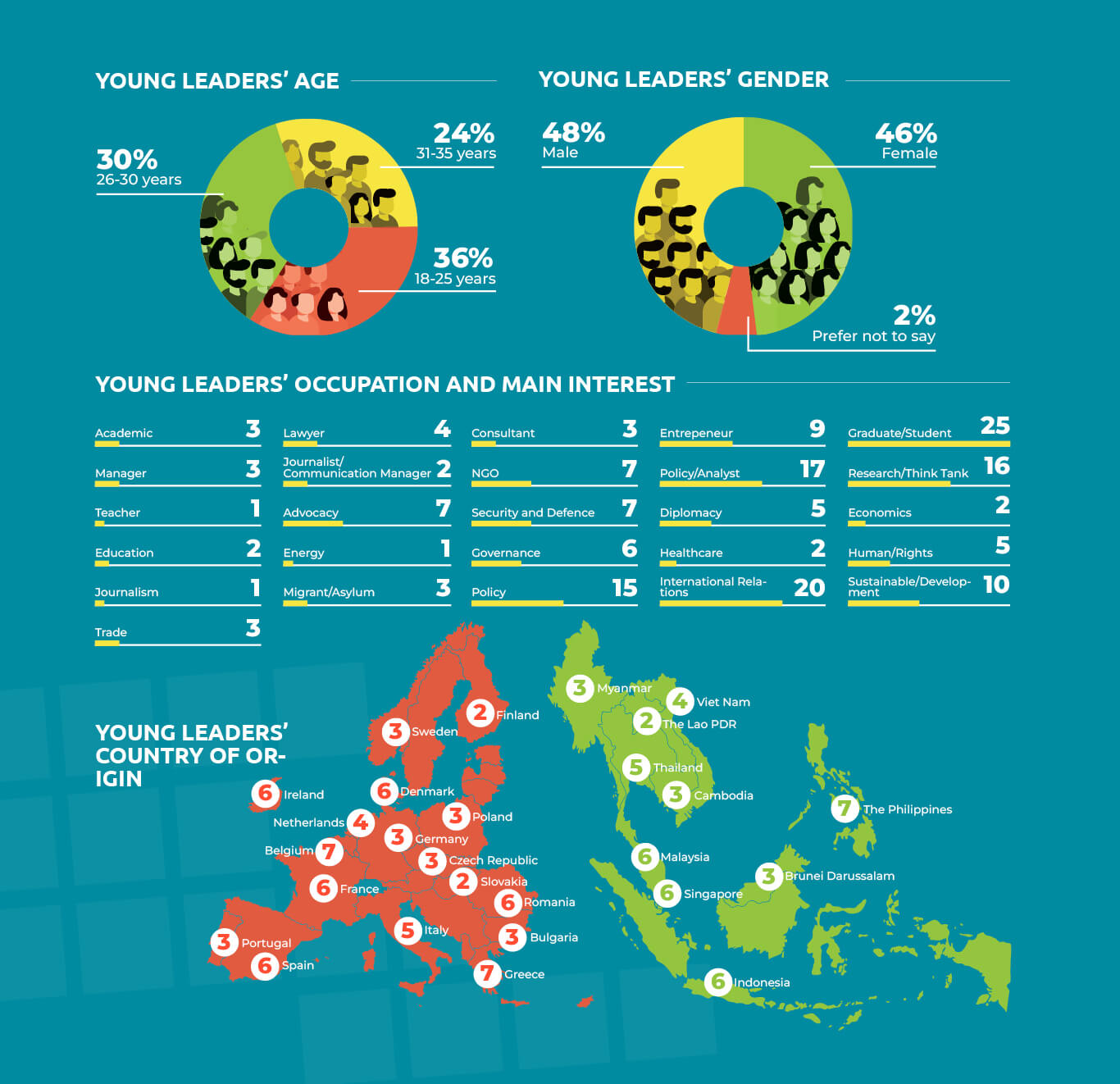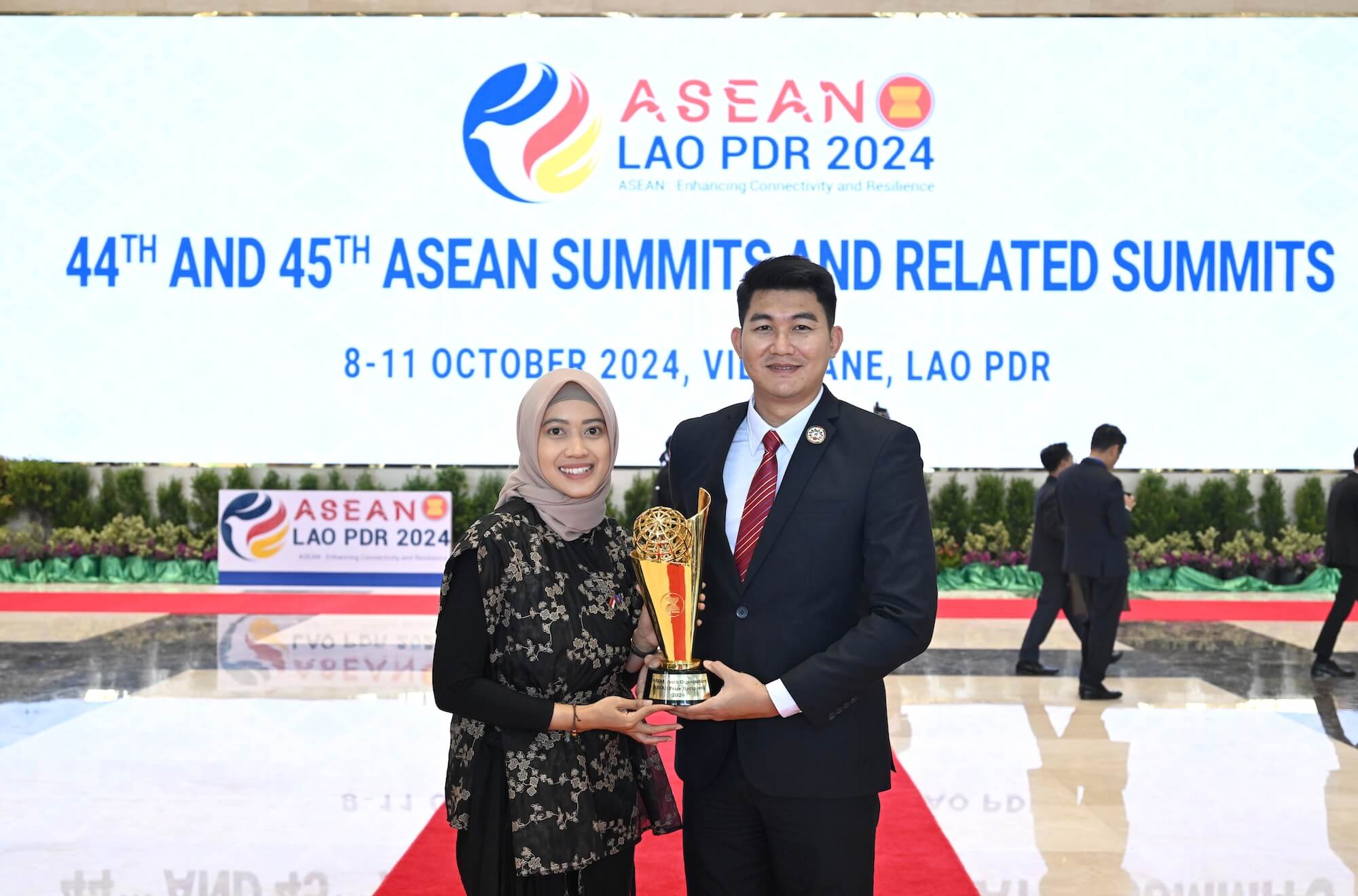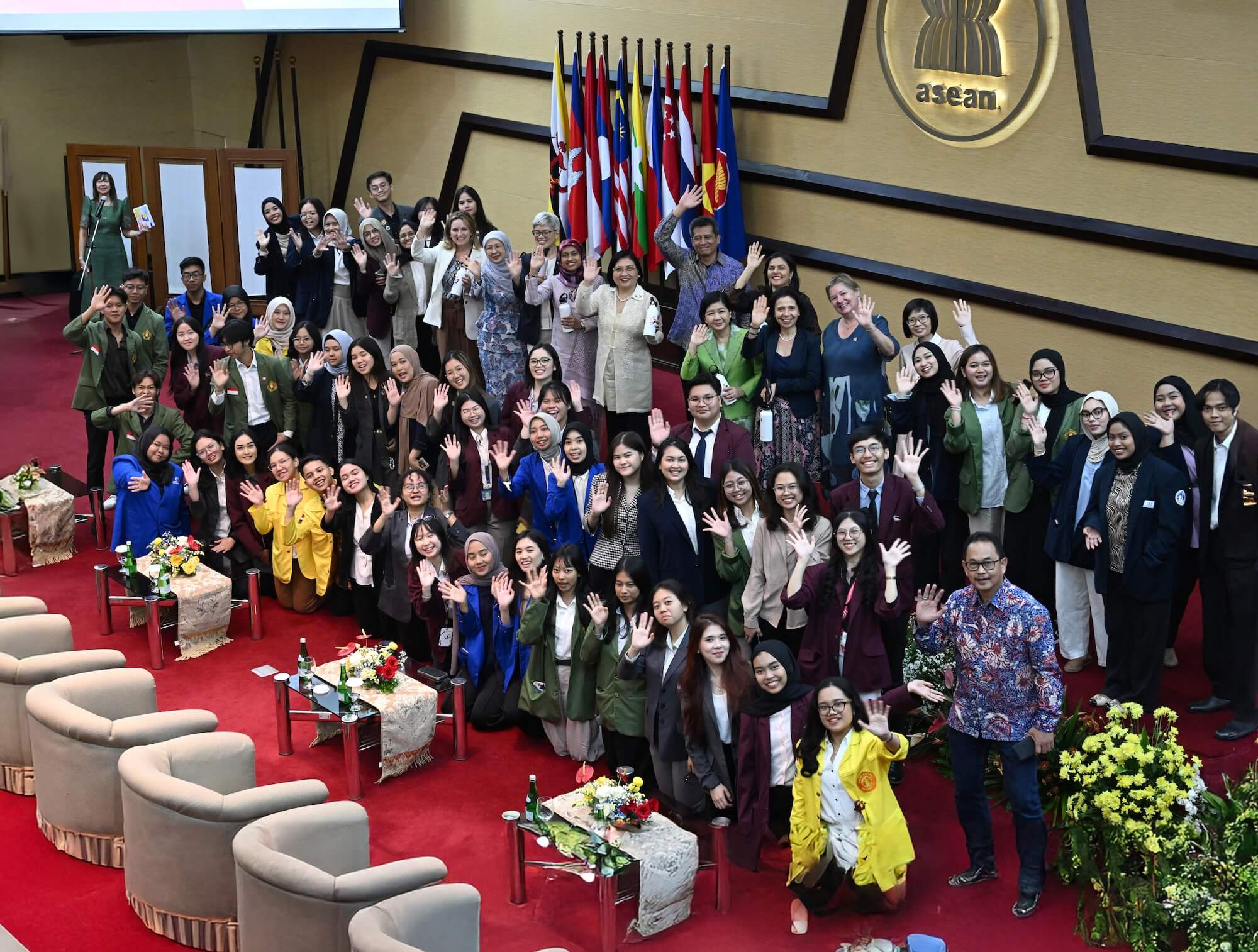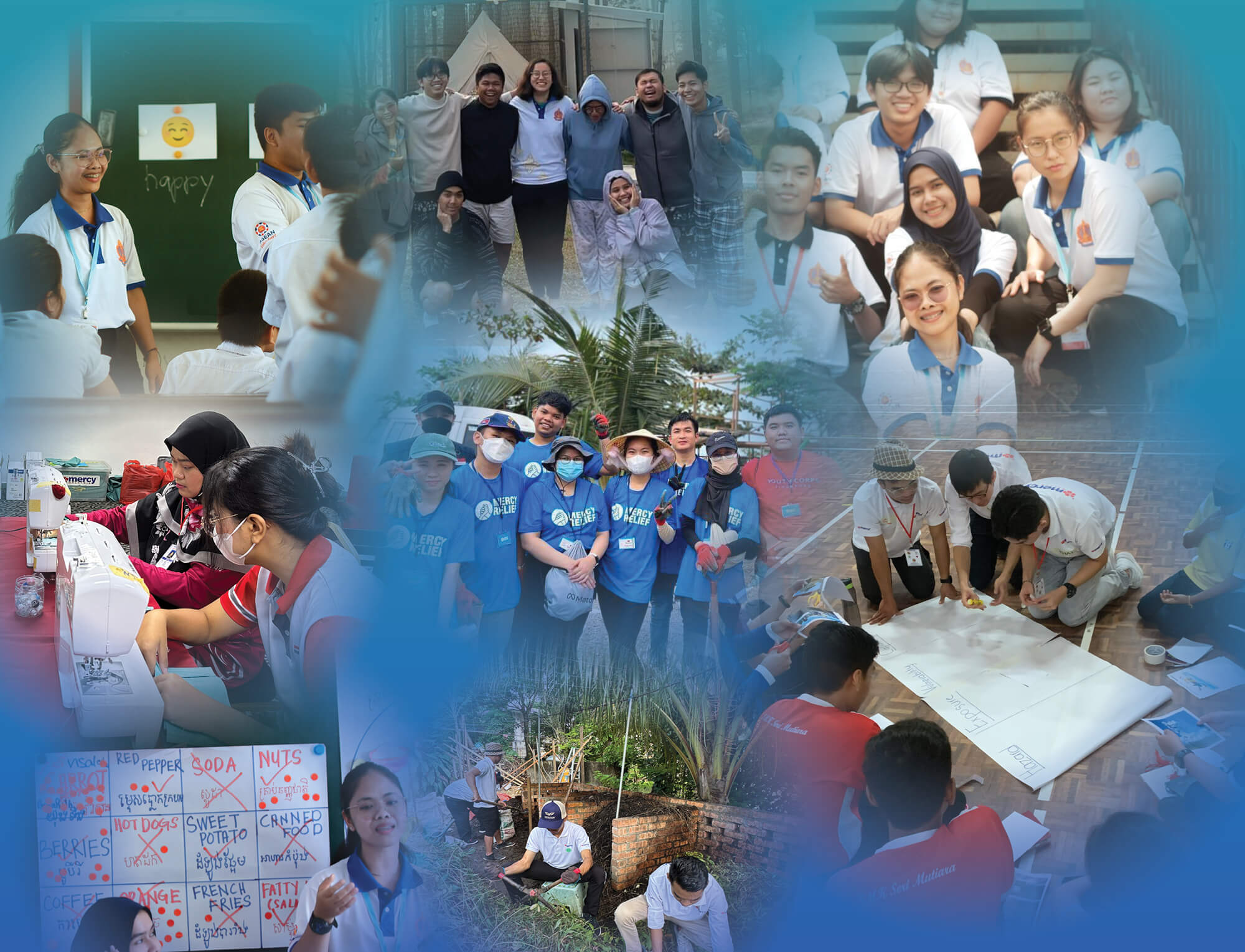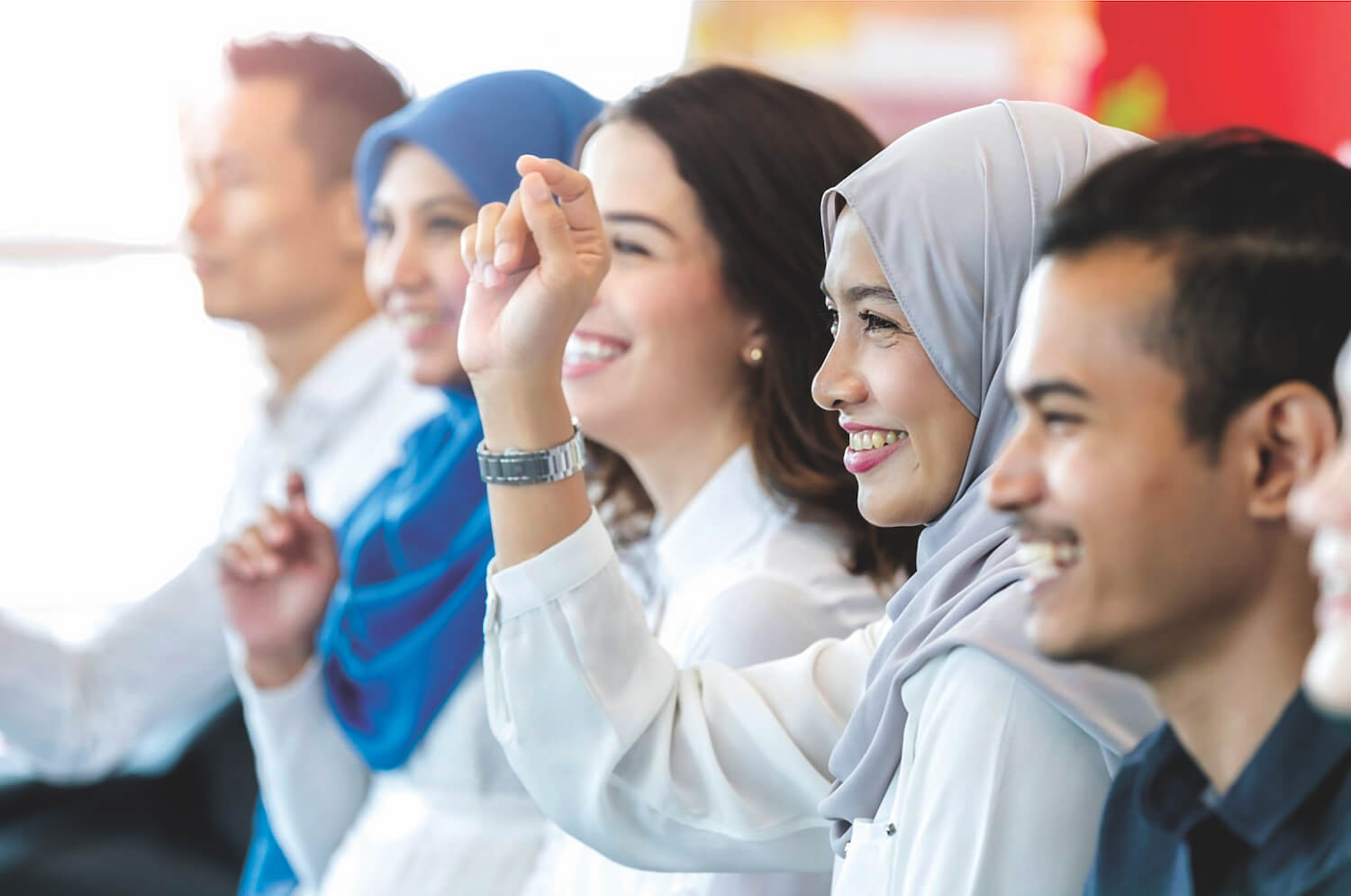




6 months—6 themes—90 youth: A contribution to ASEAN-EU relations
It is no coincidence that both the Association of Southeast Asian Nations (ASEAN) and the European Union (EU), two of the world’s most advanced examples of regional integration, celebrated 2022 as the "Year of Youth."
Young people represent more than 30 per cent of the European population and 34 per cent of ASEAN’s population. The youth population in ASEAN countries is expected to peak at over 220 million by 2038 (ASEAN website).
The youth are key agents for social and political change, as well as economic and cultural development. They are an important section of the population in any country, and they deserve everyone’s attention.
The youth are also most affected by the problems of today’s interconnected societies: climate change, unemployment, security threats, economic uncertainty, migration, etc. Addressing and adjusting to these changes will be a defining feature and task of future generations.
Recognising the role young people can play and their potential to build bridges across communities, working together, helping to manage conflict, and promote peace, the EU and the ASEAN launched the EU-ASEAN Young Leaders Forum in April 2022, which brought together ambitious young leaders from both regions.
More than 450 candidacies were submitted for the forum, proving both the need and the value of such an opportunity. Following a careful analysis of CVs, motivation, and field of activity, with a close look at gender and geographical balance, 90 young people aged between 20 and 35 were selected.
Coming from the business communities, academia, and civil society organisations, they had the chance to make their voices heard by putting forward their proposals and participating in shaping the future of ASEAN-EU relations.
During the opening ceremony, attended by more than 300 participants, Dato Lim Jock Hoi, then Secretary-General of ASEAN, underlined that “the youth should play a larger and meaningful role in building a more participatory, inclusive, sustainable, resilient, and dynamic global community,” while Igor Driesman, EU Ambassador to ASEAN, reiterated the need of connecting to “the next generation of leaders from across the EU and ASEAN to share their ideas and hopes for the future.”
Entitled “Scenarios for the Future of EU-ASEAN Relations,” the programme combined online and hybrid sessions, where youth developed skills for problem-solving through critical strategic thinking, teamwork, policy research and proposition while simultaneously learning about ASEAN- EU relations.
During a meeting, Federica Mogherini, Rector of the College of Europe and former EU High Representative for Foreign Affairs and Security Policy, reminded the youth of the importance of their role: “These times are leading the world to dangerous places. It is very important that young leaders of our regions focus their minds and their actions on how to build bridges, how to build dialogue, how to exchange positive practices, how to build a better present and future. My message to you is this: you already have the possibility, you already have a role to play, and I personally count very much on you to fulfil this task.”
The forum continued with workshops and webinars until October 2022, a unique opportunity to take part in a global network of inspiring and motivated young leaders engaged in the future of ASEAN-EU relations.
In the six months programme, the youth discussed the most pressing challenges for both regions with an impressive global network of policymakers, diplomats, international development experts, entrepreneurs, and other inspiring leaders.
The forum offered an opportunity and a safe space for a comprehensive, analytic and open dialogue on six themes:
- democratic governance and basic rights
- security
- economic perspective
- COVD-19 mitigation and recovery
- multilateralism and climate governance
- people-to-people connectivity, including education; and employment and cultural exchanges
The 90 participants contributed, with their different perspectives and innovative thinking, to the discussions on the future of ASEAN-EU relations, analysing current and future priorities for the relationship, and proposing how to achieve them through a solutions- oriented approach.
At the end of the course, the young leaders prepared thematic recommendations that six of them, elected by their peers, presented at the EU-ASEAN Youth Summit in December 2022 in Brussels, where they met their peers from the Young Indo-Pacific Forum and the Youth Sounding board.
The EU-ASEAN Youth Summit, which saw the participation of more than 200 youth representatives from Europe and Asia, was a youth-led activity, funded by the European Union, as an ASEAN-EU Commemorative Summit side event, and represented a unique space for young leaders to contribute with their different perspectives, on current and future priorities for the ASEAN-EU relationship.
During the event, the youth from the three different organisations, compiled a final list of recommendations which emphasised the need to:
- Establish an EU-ASEAN youth forum
- Strengthen relations between the two continents and increase actions against the Russian Federation and more support for the ASEAN Special Representative for Myanmar
- Increase cooperation in the rules-based regional security architecture for maritime affairs, and exchange of knowledge and practices and investment of resources to develop cybersecurity training
-
Enhance the dialogues and negotiations on an ASEAN-EU Free Trade Agreement and call for the participation of civil society organisations and relevant stakeholders to participate during the phases of its creation
-
Strengthen, via the ILO, the regulations on labour standards to promote responsible business practices and establish an independent organisation to unlock employment opportunities. Take COVID-19 back onto the agenda, with recovery measures, the development of emergency response frameworks, and medical resources for rural communities
-
Increase cooperation on green climate in emission-intensive sectors as well as strengthen climate adaptation and mitigation measures
-
Support new existing mechanisms for education, linked to the acceleration of digitalisation and encourage cross-regional labour mobility as well as cultural exchanges
Below, some of the participating youth tell us why it’s important to listen to them, how to strengthen ASEAN-EU relations and, most importantly, what they have to say to ASEAN and European leaders.

“I think that today’s youth are in a position to strengthen Europe-Asia relations more than ever. One of the largest gaps between Europe and ASEAN has always been geographical, but digitalisation is gradually closing this gap, and the youth tend to be its most proficient users and innovators. Furthermore, a wider range of young people have already grown up being exposed and even communicating with people on the other side of the world. You could say that the strengthening of relations has already been happening bottom-up, and youth contributions at the top level simply reflect this development.”
Jhon, on how the youth can contribute to strengthening Asia-Europe relations

“Connectivity is perhaps one issue that has been talked about the most in terms of Europe and Asia cooperation, and it is a sector that provides the most tangible benefits for citizens in both regions. Europe-Asia cooperation will enable dynamic mobility for citizens in both regions, introducing diversity in education, trade and even cultural opportunities. The combination of Asia’s resources and Europe’s stability will create thorough, stable, and rapid development. It will be a good catalyst not only for growth, but will also offer incentives for citizens from both regions.”
Silvi, on how Asia-Europe relations make a difference in our daily lives

Your decisions to nurture Asia-Europe cooperation play a key role for both regions, as well as for global spectators, in accelerating efforts to decouple the economy and carbon emissions, for the better or the worse.
Amira’s message to Asian and European leaders

“Listen to and include the bold and ambitious young generation in the search for policies to solve our world’s most pressing challenges: the climate crisis and the upholding of human rights and democracy.”
Zoe’s message to Asian and European leaders
